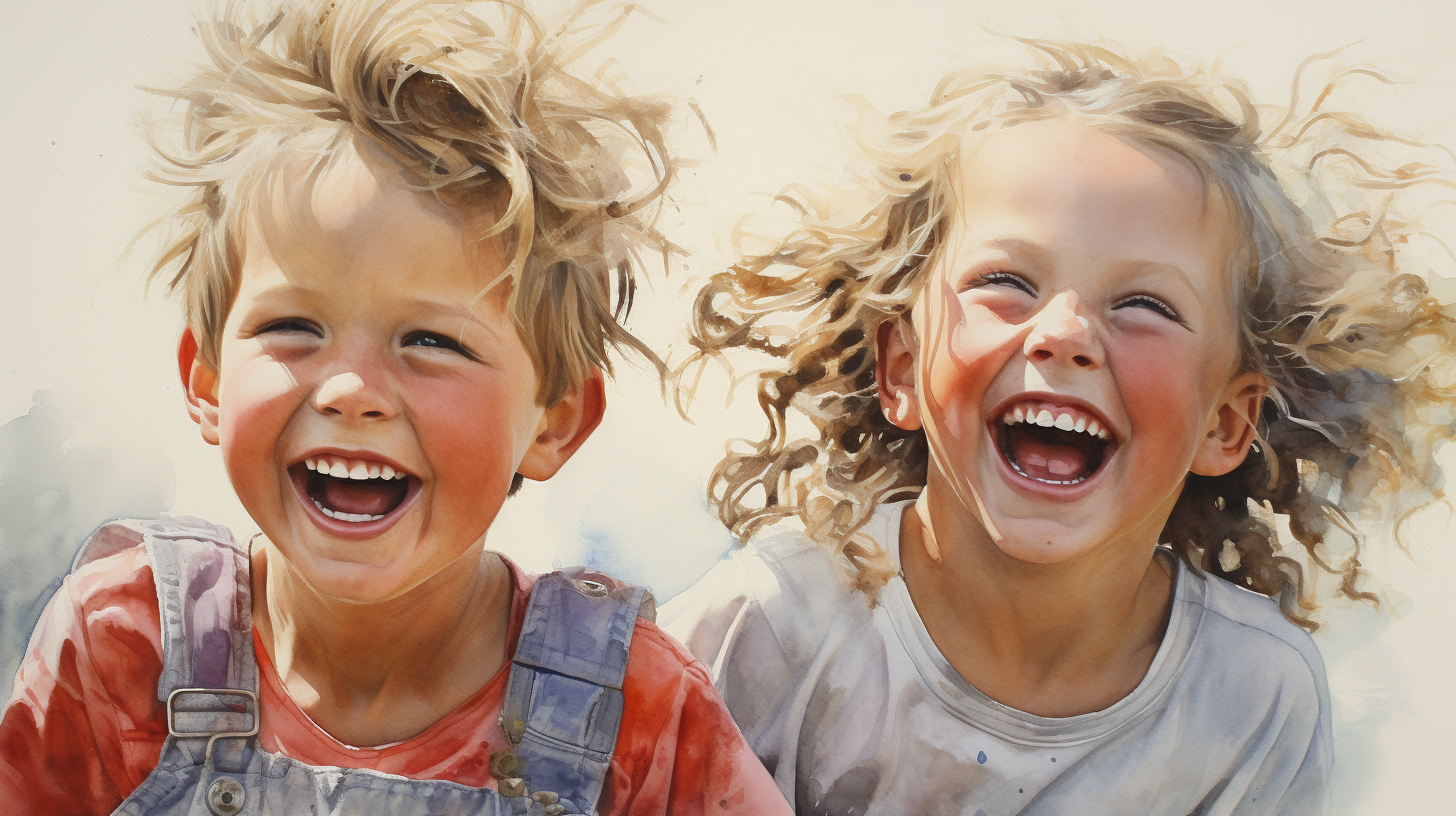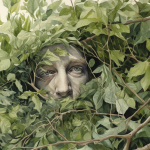What does dreaming about laughing mean?
Dreams have fascinated human beings for centuries, serving as a window into our subconscious thoughts, emotions and unresolved experiences. Among the many peculiar and vivid images our minds conjure at night, laughing within a dream carries particularly intriguing symbolism. While we often associate laughter with joy and lightheartedness in waking life, its appearance in dreams can take on a variety of deeper meanings, depending on the context in which it appears and the emotions attached to it.
At its most basic level, dreaming about laughter can reflect a sense of inner release. It might suggest that, consciously or not, you are unburdening yourself of stress, anxiety or emotional baggage that has built up in your waking hours. The act of laughing within a dream could be your subconscious mind’s way of encouraging you to take life a little less seriously, urging you to find humour even in difficult situations. Often, those who suppress their emotions or carry the weight of unresolved issues find themselves laughing in dreams as a symbolic form of catharsis.
However, it isn’t always a positive omen. Sometimes, laughter in dreams may carry a more unsettling undertone. It can represent nervousness, insecurity or a subconscious attempt to mask feelings of discomfort. In certain cases, particularly when the laughter feels forced, mocking or inappropriate in the dream, it may reveal underlying fears of being ridiculed or not taken seriously by others. This form of dream laughter often emerges during periods of social stress, when one feels judged or misunderstood in their waking life.
Another dimension to consider is the presence of other people in the dream and the nature of their laughter. If you find yourself laughing joyfully with friends or family, it might reflect a desire for companionship, connection and shared happiness. Alternatively, if you dream of strangers laughing at you, it could hint at feelings of vulnerability or self-doubt that you may be trying to suppress.
Ultimately, laughter in dreams operates as a versatile emotional symbol. It can be a healing release, a sign of suppressed worry, or even an indicator of how well-aligned you are with your authentic emotions. To truly understand its meaning, it’s crucial to pay attention to the surrounding details, your emotional state within the dream, and how it resonates with your experiences upon waking.
Common scenarios involving laughing and their meaning
While the act of laughing in a dream holds intrinsic significance, the scenario in which it occurs often shapes its interpretation even further. Dreams are rarely straightforward, and the situations surrounding laughter can either amplify its positive qualities or reveal hidden discomforts. One of the most common scenarios involves laughing with close friends or family members in a relaxed, joyful setting. In such dreams, the laughter typically symbolises a longing for connection, warmth and belonging. It could be a reflection of cherished memories or a subconscious reminder to nurture these relationships in waking life.
Conversely, dreaming of laughing alone, especially in an empty or unfamiliar environment, can carry a different message. This kind of solitary laughter may signify a growing sense of isolation or detachment. It might hint at an internal struggle where you feel the need to present a cheerful façade while internally battling loneliness or uncertainty. In some instances, this could even be your mind’s way of alerting you to the importance of seeking authentic companionship rather than pretending to be content.
Another frequently reported scenario involves being laughed at by others. Whether it’s a crowd of strangers or familiar faces, this unsettling experience often mirrors feelings of insecurity or self-consciousness. It may suggest that you’re overly concerned with how others perceive you or that you fear being misunderstood. This type of dream tends to surface during times of significant life changes, such as starting a new job, moving to a new place or entering unfamiliar social circles, when one’s self-esteem feels particularly fragile.
Interestingly, dreams where you laugh at something unusual or inappropriate can be particularly revealing. If you find yourself chuckling at a serious situation or during an argument, it could point towards unresolved inner conflict. Perhaps there’s a situation in your waking life that you’re refusing to acknowledge as serious, using humour as a coping mechanism. This kind of misplaced laughter in dreams can act as a gentle nudge, encouraging you to confront uncomfortable truths with honesty and courage.
Laughter that turns sinister within a dream — such as maniacal or cruel laughter — often signals deeper emotional turbulence. This unnerving form of laughter can represent suppressed anger, jealousy or fear. It might also indicate a part of yourself that you’ve ignored or denied, attempting to assert its presence. These dreams can be particularly vivid and may linger in your mind long after waking, suggesting unresolved issues demanding attention.
Through examining these varied scenarios, it becomes clear that laughter in dreams is rarely random. It serves as a subtle, yet profound, emotional barometer, offering insights into how we process joy, fear, connection and conflict beneath the surface of our conscious awareness.
What is the spiritual meaning?
Beyond the psychological interpretations, laughter in dreams holds significant meaning in many spiritual traditions and belief systems. Ancient cultures often viewed dreams as messages from the divine, a way for higher powers or one’s inner spirit to communicate guidance and wisdom. Within this context, laughter carries a deeply symbolic weight, often associated with enlightenment, emotional release and inner healing.
Spiritually, dreaming of laughter can signify a cleansing of the soul. It may suggest that your spirit is shedding unnecessary burdens, releasing negativity and embracing a lighter, more joyful state of being. In certain schools of thought, such as shamanic or indigenous practices, laughter in dreams is seen as a gift — a sign that you are moving closer to emotional balance and spiritual alignment. It could indicate that your soul is ready to transcend old patterns of fear and embrace a more authentic, uninhibited way of living.
Furthermore, laughter can act as a bridge between the conscious and unconscious self. In spiritual dream interpretation, it’s believed that when one laughs in their dreams, the soul is speaking in its purest form, free from the constraints and expectations of waking life. This laughter may carry messages of reassurance, telling you that it’s safe to let go, trust the journey and find joy in the unpredictability of life.
In dreams where the laughter comes from unseen or mystical figures, it may be interpreted as a message from spirit guides, ancestors or higher powers. The laughter in these cases often symbolises encouragement, reminding you not to take life’s challenges too seriously and to maintain a sense of humour in the face of adversity. It serves as a subtle affirmation that even during difficult times, there is room for light, hope and unexpected joy.
At times, the laughter may not belong to you at all but to others within the dream. In spiritual terms, this can suggest external energies influencing your emotional state. Perhaps there are people in your life, living or departed, whose presence continues to affect you in ways you haven’t fully acknowledged. The dream might be a gentle reminder to reflect on these connections and decide whether they continue to serve your highest good.
Ultimately, the spiritual meaning of laughter in dreams is layered and deeply personal. It invites you to look beyond surface-level interpretations and consider how the laughter made you feel, what it illuminated within your heart and whether it left you with a sense of peace or unease upon waking.
The importance of recording your dreams
Keeping a dream journal is an invaluable tool for those seeking to understand the messages of their subconscious. By recording your dreams soon after waking, you capture fleeting details and emotions that might otherwise slip away. Over time, patterns and recurring symbols — like laughter — become easier to identify, offering deeper insights into your emotional and spiritual landscape. A written record not only helps to clarify individual dream meanings but also reveals how your inner world evolves in response to life’s changes, serving as a personal roadmap for growth and self-discovery.



